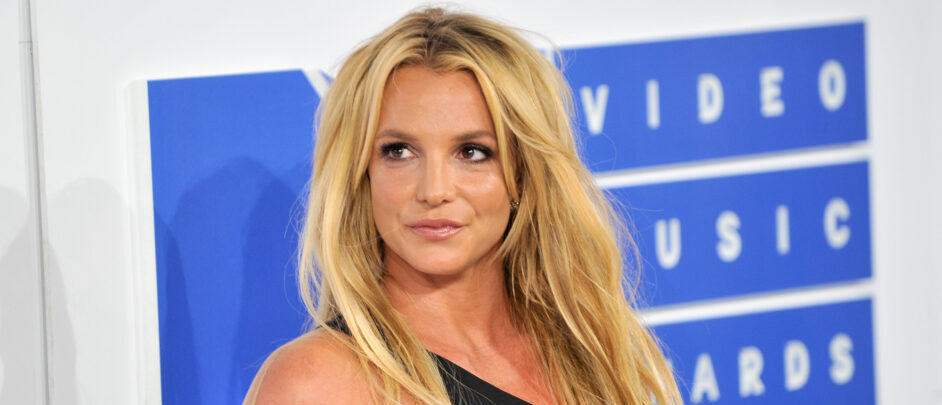
What To Learn about Disability Rights from #FreeBritney
By: Gilary Guzman & Marcie Hawranik
Conservatorship and Guardianship are not new concepts to the disability community. Britney Spears’ case and experience has brought this issue forward to the media. Britney has been under a conservatorship for over a decade. For 13 years, Britney’s father, Jamie, had full control over her finances, career, reproductive health, and more. A conservatorship is a legal process and can be defined differently in different states, and provinces within Canada. In California, a conservatorship is defined as: “a court case where a judge appoints a responsible person or organization (called the ‘conservator;) to care for another adult (called the ‘conservatee’) who cannot care for himself or herself or manage his or her own finances.”
Conservatorship is essentially a court-ordered process with the intent to protect people facing barriers to making independent decisions regarding their health, finances, and other personal matters. In practice, a conservatorship may lead to an individual’s lack of “personhood” and autonomy. Every single decision a person may make in their life is made by someone else deemed more capable. Decisions extend to marriage rights and even reproductive health. Disabled people’s forced sterilization or other reproduction-prevention practices are a modern form of eugenics (source: HRW).
In June 2021, Britney detailed in court that the conservatorship silenced, isolated, medicated, exploited, emotionally abused, and manipulated her. She has been fighting this legal battle to dismantle her conservatorship for about 13 years. Under her conservatorship, she was forced to work when she couldn’t, forced to take medications that she didn’t want to take, and was forced into mental health treatment facilities against her will.
Conservatorships (like Britney’s) results in losing your right to your own medical treatments, to reproductive health, to finances, to marry, to hold custody of children, etc. Unfortunately, Britney’s story is not unique or isolated. In 2017, 17,000 people in Ontario were under guardianship, the Canadian equivalent to a conservatorship.
Why is this a Disability Rights issue?
Conservatorships historically and presently oppress people with disabilities, medical conditions, chronic illness, mental illness, and the aging population. Historically, conservatorships have been reserved in cases where people are considered unable to care for themselves in any capacity. However, they should only be used when there is no other less restrictive option, such as power of attorney. They should also be time-limited and reviewed regularly according to experts and self-advocates. This system continues to oppress people with disabilities as these decisions are made by non-disabled people with little, or no, consideration of the individual’s perspective.
Disability Rights California stressed that “conservators should always act in concert with the conservatee’s wishes and needs. This means the conservator’s decisions should reflect, as closely as possible, the expressed or inferred preferences and choices of the conservatee.”
Human Rights Issue For All
This ultimate success of her case proves that a disabling condition, such as a mental health diagnosis or disability, should not automatically lead to an individual’s loss of autonomy and independence. We all have a right to decision-making regarding our body, health, finances, relationships, career and all other aspects of life. Britney’s situation and experience highlight how systems built to protect and support people with disabilities may actually cause harm.
Conservatorship is a human rights issue because the process is rooted in ableism and ageism. Ableism is the societal belief that certain human abilities are superior to others. Ableism disproportionately affects people with disabilities who may not have certain abilities favoured in society, despite disability being a natural difference in the human experience. Ageism is the discrimination against older adults in which aging is viewed in a negative way and society is built the assumption that everyone is young – and therefore have certain abilities. Ableism and ageism both influence the way people’s capability in decision-making is determined.
What are the alternatives to conservatorship?
There is a shift in autonomy and decision-making when we turn 18. At 18, we gain certain rights for the simple fact of reaching that age. For many people, early adulthood is where bad decisions happen – whether it’s a bad haircut, poor relationship choices, or rushing into a job or post-secondary that is not the right fit. We are meant to learn from the decisions we make – both good and bad. For people with disabilities, there is no room for bad decisions to be made without the decision being attributed to their disability, or mental illness, etc.
As mentioned before, conservatorship should be a last resort. Disability self-advocates and allies advocate for systems and programs that build decision-making capacity to empower people. They advocate for building people’s support networks up to provide guidance in making decisions – the same way we would discuss with our trusted networks, families, friends, and mentors when making a decision.
This issue impacts us all, whether it is now or in our futures. If we live to experience aging, this issue will impact us then. If we experience a life-changing event that changes the way we navigate our spaces, this issue will impact us. The time is now to care and be a strong ally for our community.
What can you do?
Listen to: The Heumann Perspective Podcast

